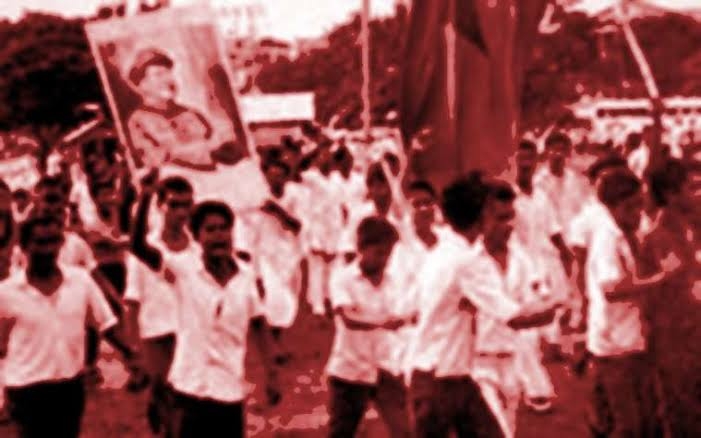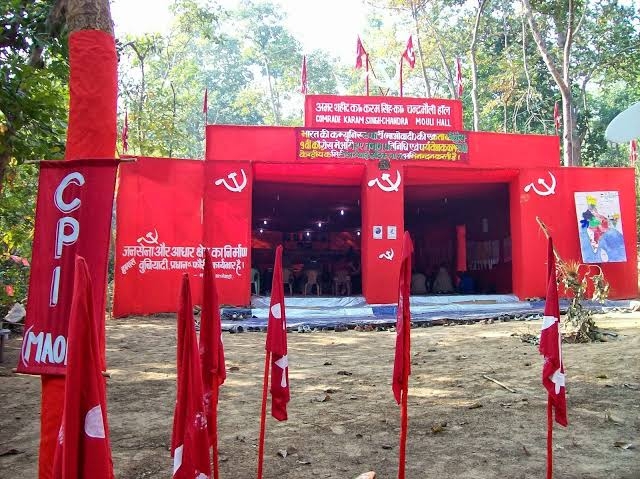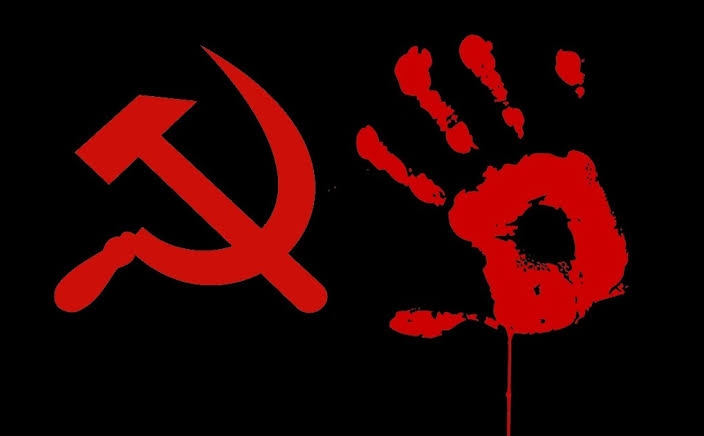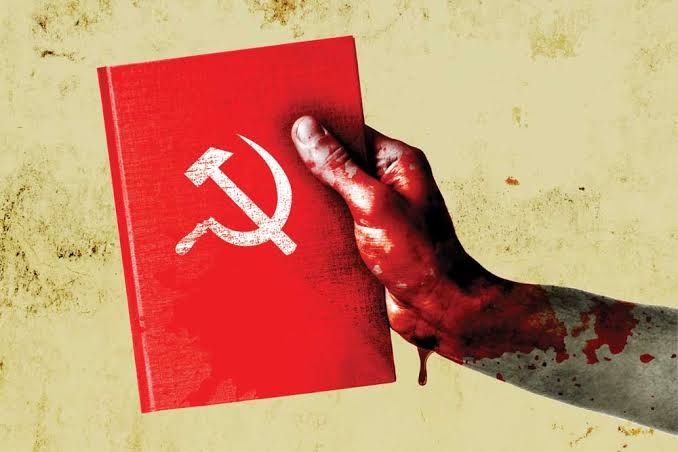The Red Threat

Karl Marx never touched a single weapon, but the book "The Communist Manifesto" emphasizing his ideology proved to be one of the deadliest weapons. Marxist ideas entered India unnoticeably in 1925 with the formation of the Communist Party of India.
It tried to mark its presence in every endeavor possible, like Trade Unions, Peasant Organizations, etc. After Independence, in the new democratic wake, CPI, though initially confrontational, participated in electoral politics but later faced a split.

After the merger of Andhra Pradesh's PWG and Bihar's MCCI to form CPI (Maoist) in 2004, the Indian Government identified Maoists as the single biggest internal security threat.
CPI Maoist rejects Indian democracy and electoral politics and wants to establish a communist-maoist dictatorship regime in India. The central theme of Maoists is to capture state power through armed rebellion. They incite hatred and hostility among the masses against the State.

Maoist ideology is against the democratic fabric of our country. Their dictatorial aspirations are contrary to what our Nation-Builders had imagined.
Maoists claim to stand for Tribals, but their continuous hindrance in developmental projects and the Government's attempts to bring marginalized communities into the mainstream have further exploited the tribals.
They have looted arms and money and have caused significant economic damage. They are indulged in drug trafficking, kidnapping and extortion. They have violated human rights and are engaged in running propaganda influenced by dirty politics.
Reliable data shows that between 2009 and 2019, the number of civilian deaths (2,191) due to Maoist attacks was more than deaths due to Islamic terrorism in Jammu and Kashmir (384). Even the number of deaths of soldiers (1,342) is higher than those at the borders (675).

India has witnessed a long-running series of attacks and counterattacks between the Government and the Naxalites. Since Law and Order is under the State List, the affected states have undertaken critical counter-insurgency operations to curb this national threat.
Due to the shift in the Government's approach from 'reactive' to 'proactive', initiatives like connectivity projects to build roads and mobile towers, schools, infrastructure, PM Modi's SAMADHAN, Operation Green Hunt, Aspirational Districts program, etc., there has been significant improvement in LWE security situations over the last years.
Ministry of Home Affairs' reports showed that the red corridor comprising Chattisgarh, Andhra Pradesh, Bihar, and West Bengal is shrinking. Infact, lowest number of naxalite attacks were recorded in the year 2022.
Although reports speculate that this movement will ultimately fade away like that of the Shining Path in Peru, the Indian Government must analyse the root cause of the sustainment of this movement for decades.

Our rival nations can absolutely turn this internal security challenge into a serious external threat. The Government needs to ensure development in these areas and should gain trust by addressing the unattended concerns of the tribals.
Government should engage with local police for tackling such threats as they are aware about the topography of affected terrains and can connect with residing population in a better way. Technological advancement and better intelligence systems are the need of the hour.
Maoism is anti-democratic; here, the powers are concentrated in the hands of a highly centralised single party, which can lead to abuse of powers and curtailment of fundamental rights of citizens.
In this era of globalization, Maoism will make the economy stagnant and inefficient. Lack of innovations and freedom will weaken the roots of any nation.
On prima facie, it can be seen as a group of individuals struggling for their rights and equality, but in reality, it is weakening our nation's roots like a termite.
Right now, India is a country with enormous potential and is full of hopes. India will be able to achieve its goal only when it is internally united.
In Conclusion , I would like to add this excellent excerpt -
"But in reality a dictatorship never has one dictator only, as many people become willing to scramble for power over the next person above them. The country was full of local hegemons, each trying to deceive the next one up into believing that their achievements were genuine." (Frank Dikotter, Author of Mao's Great Famine.)
Article by
Shailee Nigam